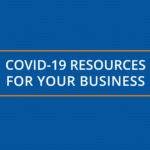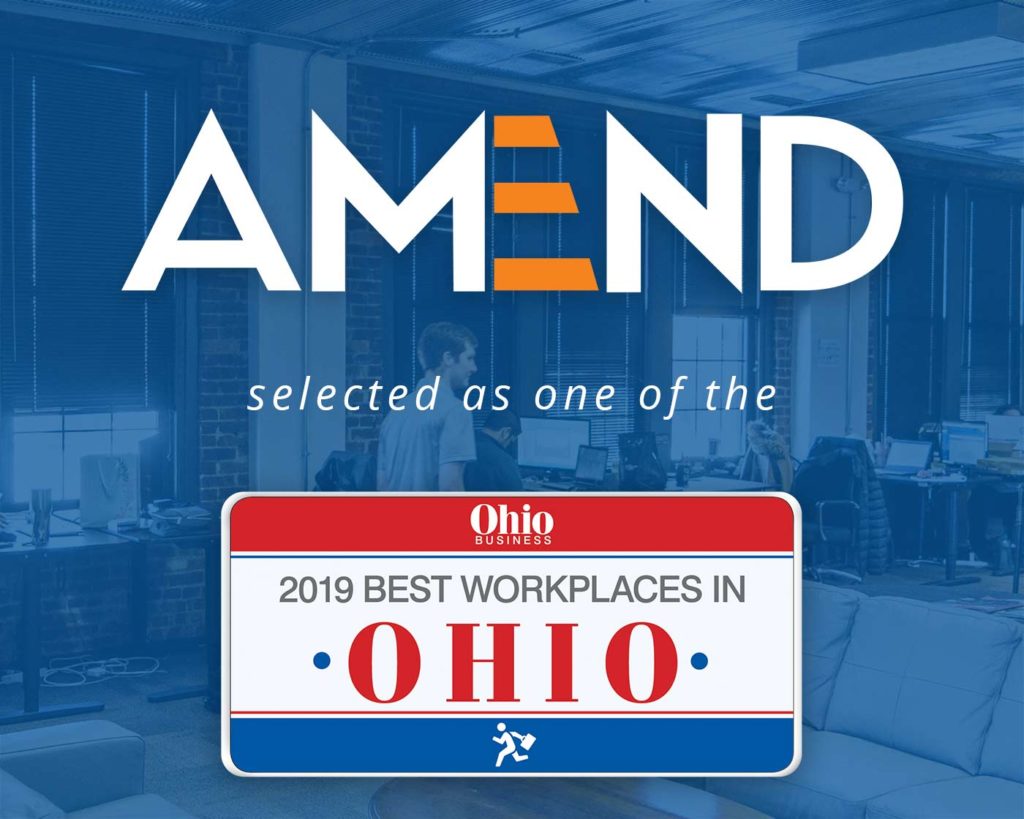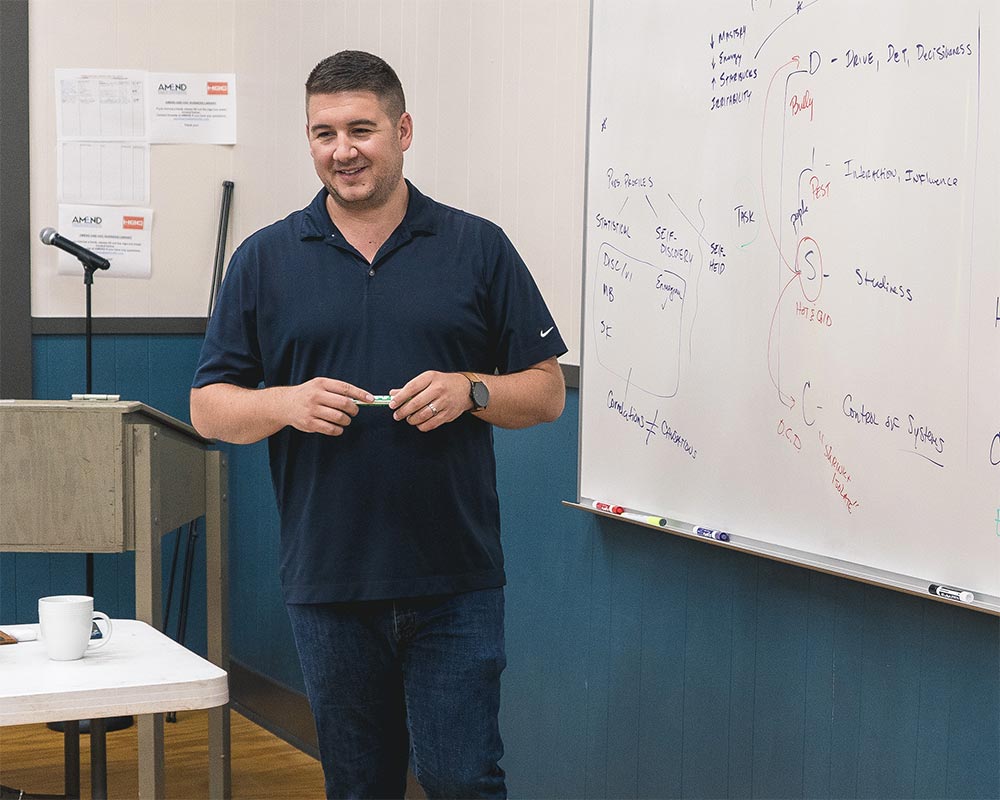
“Modern HR practices are the worst.”
Bobby Smyth, Partner at AMEND, ardently believes this statement. “The modern HR practices for training employees are all about being ‘equal’. It’s about setting up a checklist and going down, checking off boxes when people complete the same exact training. ‘Equal’ does not mean ‘fair.’ Fair is based on the individual, allowing for growth. That’s a crusade that Paul [Delaney] and I have been on for a long time.”
Smyth has been running leadership training sessions for the AMEND team, as well as AMEND’s clients, for seven years. “A lot of people use that phrase, ‘Treat others the way you’d like to be treated.’ But if you flip that around and treat them the way they’d like to be treated, you’d get my view on individualized leadership. We all work differently, and we are all motivated differently.”
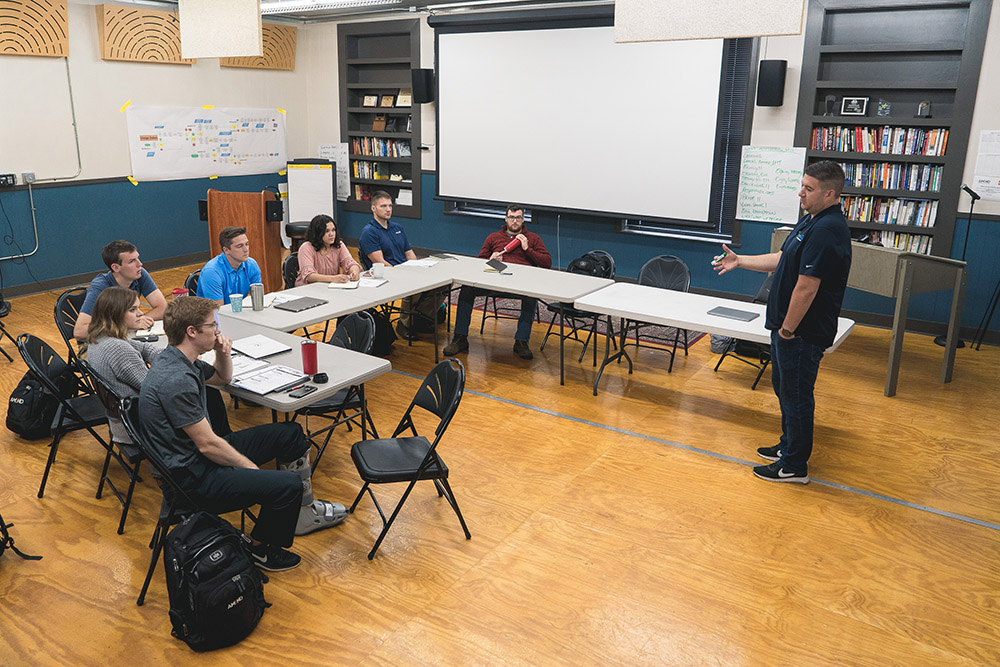
Developing Young Talent
When training new employees, AMEND places a large focus on self-awareness and self-development. The idea is that when someone has conscious knowledge of their own character, motives, and desires, then that person develops an emotional intelligence that allows them to connect with almost anybody. “I have held roles that I was very young for, and I don’t think I would have been put into them without showing maturity, self-awareness and emotional intelligence,” Smyth reflected.
He credits what he’s learned about self-awareness to his years of experience, as well as those who have taught him along the way, including Tom Hattersley, his long-time business coach from Pathway Guidance. “It takes time to develop these skills, but people really trust others who work on themselves. If you don’t have the exact experience, but you’re always working on yourself to get better, then I trust you to try something new.”

The Toolbox of Self-Development
In order to encourage this awareness, AMEND has a “toolbox” of different personality and strength assessments used to encourage self-development. An employee favorite, the DISC assessment, has been taken by every team member. DISC is a behavioral assessment tool that centers on four main personality traits: Dominance, Influence, Steadiness, and Conscientiousness. Once the traits are established, the test digs into self, others, and situational awareness and management. Businesses use the assessment to encourage work productivity, teamwork and communication.
Smyth holds a DISC session with every group of analysts that comes through AMEND. “This type of training isn’t pushed at anyone though,” Smyth explained, “It’s requested, we want them to own their development.” Within the session, Smyth works with the analysts to discover each of their own natural and adaptive behavioral styles, as well as the behavioral styles of
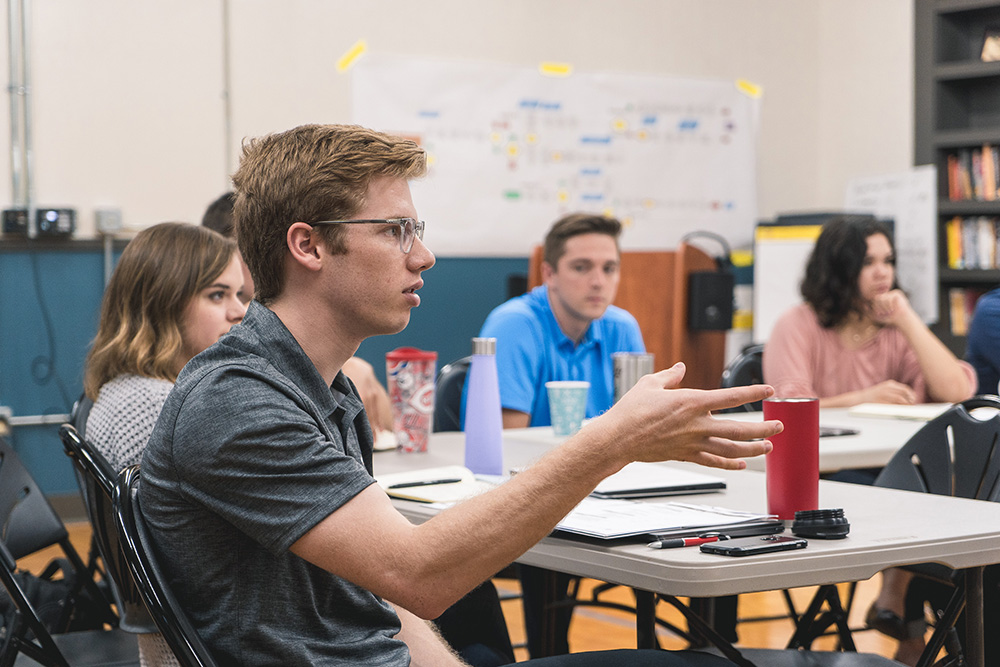
DISC in Action
Cameron Cofskey, an analyst since this past fall, has taken the DISC assessment twice. When asked how the DISC assessment played a part in his experience at AMEND, he brought up his interactions with past project leaders. “At the time I was struggling to speak confidently when presenting my projects, and because my project leader was so self-aware and aware of others, he was able to say, ‘What can I do that would be helpful for you to grow in that area?’” Cofskey explained that in that simple gesture, he felt that someone was taking the time to understand him and how he works.
“He didn’t use DISC to do that. No one uses DISC daily to analyze each other, but I think having that training and the conversations that surround it allows for a change in the culture. Instead of making it a ‘one size fits all’ environment, everyone makes an effort to understand how people work best.”
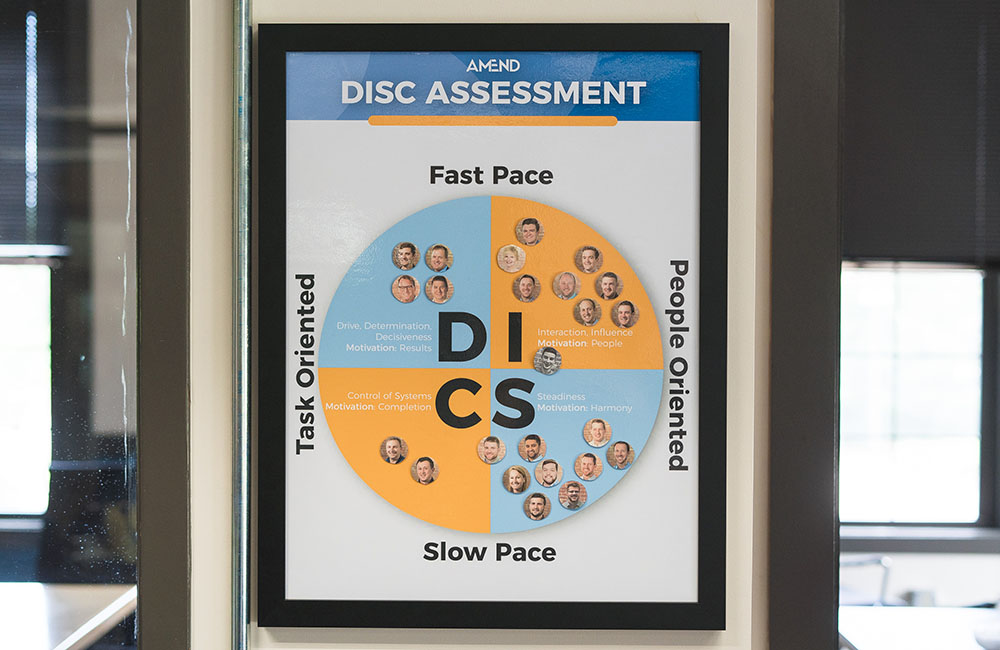
The Team Mentality
A picture frame hangs on a wall in the AMEND office, containing the DISC results of every team member. Individual development has a definite presence in the
With an emphasis on individual development and awareness of self and others, AMEND team members are able to be flexible and work in a variety of environments. They connect with new people every day and adapt quickly to the needs of others. They maintain the AMEND culture while supporting everyone else’s culture as well. Smyth concluded: “It takes special people to do this work.”




